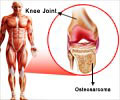Q: Which doctor should I consult if I have a lump with increasing size and pain?
A: You should first visit a general practitioner who will refer you to the specialist such as a medical or surgical oncologist.
Q: Are soft tissue sarcomas hereditary?
A: Most sarcomas are not caused by an inherited faulty gene that can be passed on to other family members. But people who have some rare inherited genetic conditions are at more risk of developing a sarcoma. These conditions include neurofibromatosis, Gardner’s syndrome, Li-Fraumeni syndrome and retinoblastoma.
Q: Can soft tissue sarcoma become dangerous?
A: It depends on the stage of the soft tissue sarcoma. Stage IV of soft tissue sarcoma, when it has spread to distant sites (M1) is rarely curable. But other patients may be cured if the main tumor and all of the areas of cancer spread (metastases) can be removed by surgery.
Q: How common is soft tissue sarcoma cancer?
A: Soft-tissue sarcomas are relatively uncommon cancers. They account for less than 1% of all new cancer cases each year. This may be because cells in soft tissue are not continuously dividing cells in contrast to tissues that more commonly give rise to cancers. However, they are more common in children than in adults.
Q: Can I get another cancer after being treated for soft tissue sarcoma?
A: No matter what type of cancer you had, it is still possible to get another cancer, even after surviving the first. Unfortunately, being treated for cancer does not mean you cannot get another cancer. In fact, certain types of cancer treatments can be linked to a higher risk of certain second cancers. Survivors of soft tissue sarcoma can get any type of second cancer, but they also have an increased risk of:
Q: Which doctor should I consult for bone cancer?
A: You should consult an orthopedic surgeon, who may work along with a surgical oncologist and other specialists to treat your bone cancer.
Q: What type of precautions should one take after surviving soft tissue cancer?
A: All survivors of soft tissue sarcoma should:










